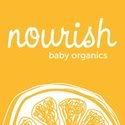
There are so many reasons why I love sunflower seed oil and chose to include it in my product line. It is rich in omega fatty acids, vitamins A, D and E and there is also strong evidence that a daily application of it can significantly reduce nosocomial infections for preterm infants according to the results of a randomized study.
"Evidence is emerging that the skin is much more important as a barrier to infection than previously recognized, particularly in preterm infants whose skin is underdeveloped," lead author Gary L. Darmstadt, from Johns Hopkins University in Baltimore, Maryland, says in a news release. "The good news is that treatment is available to strengthen the function of the skin as a barrier in these vulnerable newborns."
At Dhaka Shishu Hospital in Bangladesh, infants born before week 33 of gestation were randomized to daily massage with sunflower seed oil (n = 159) or with Aquaphor, consisting of petrolatum, mineral oil, mineral wax, and lanolin alcohol (n = 157). Using an intent-to-treat analysis, the investigators compared the incidence of nosocomial infections among infants in these two groups and in an untreated control group (n = 181).
Infants treated with sunflower seed oil were 41% less likely to develop nosocomial infections than were control infants (adjusted incidence rate ratio [IRR], 0.59; 95% confidence interval [CI], 0.37-0.96; P =. 03). Aquaphor did not significantly reduce the risk of infection (IRR, 0.60; 95% CI, 0.35-1.03; P = .06). There were no adverse events reported.
"Our findings confirm that skin application of sunflower seed oil provides protection against nosocomial infections in preterm very low birthweight infants," the authors write. "The low cost, availability, simplicity, and effect of treatment make it an important intervention for very low birthweight infants admitted to hospital in developing countries."
Study limitations include insufficient power to assess the overall effect of Aquaphor therapy on incidence of nosocomial infections, slower enrollment than anticipated, and exhaustion of funding necessitating study closure before the enrollment target was achieved.
"More than 90% of babies in Bangladesh, Nepal, and much of South Asia are massaged with mustard oil as part of routine practice," Dr. Darmstadt says. "The challenge now is to discourage use of mustard oil, which can delay recovery of the skin barrier and have a toxic effect on the skin, and persuade people to use alternative proven, available and low-cost products such as sunflower seed oil."
The Thrasher Research Fund, the U.S. Agency for International Development, Save the Children/USA, and the Society for Pediatric Dermatology supported this study. Omega Nutrition provided sunflower seed oil, and Beiersdorf donated Aquaphor Original Emollient Ointment. The authors report no conflict of interest.
Lancet. Posted online March 3, 2005.

















No comments:
Post a Comment